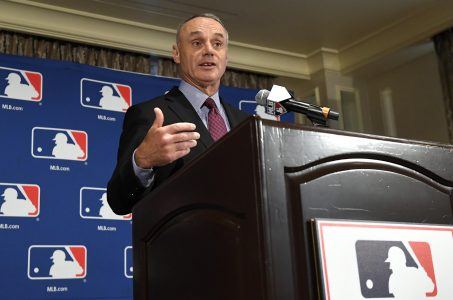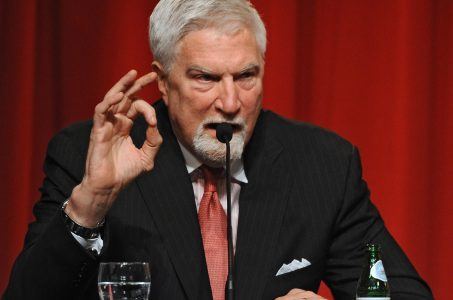NFL Supports ‘Common Sense’ Sports Betting Laws, Sets Out ‘Four Core Principles’ of Regulation
Posted on: May 22, 2018, 06:17h.
Last updated on: May 22, 2018, 06:41h.
On the eve of the NFL’s spring meeting in Atlanta, commissioner Roger Goodell tentatively embraced sports betting and called on Congress to “enact uniform standards” for states that opt to regulate.

These, he wrote, must include four “core principles,” as follows:
- There must be substantial consumer protections
- Sports leagues can protect our content and intellectual property from those who attempt to steal or misuse it
- Fans will have access to official, reliable league data
- Law enforcement will have the resources, monitoring and enforcement tools necessary to protect our fans and penalize bad actors here and abroad
No Integrity Fee, But…
The NFL has long been opposed to legal, regulated sports betting but — unlike the NBA and MLB, which accepted the inevitable last year and began lobbying for their own interests — the league has remained relatively silent on the issue.
But the NFL has not had its head in the sand all this time, according to Goodell, who said the organization had spent considerable time preparing for the advent of legal US sports betting.
We have … prepared to address these changes in a thoughtful and comprehensive way, including substantial education and compliance trainings for our clubs, players, employees and partners,” he wrote. “These efforts include supporting commonsense legislation that protects our players, coaches and fans and maintains public confidence in our games.”
Unlike the NBA, MLB, and more recently the PGA, the NFL is not demanding a so-called “integrity fee” — a percentage cut of all bets on its games — but its emphasis on the protection of its content and intellectual property suggests that it may be planning to monetize its data and stats by forcing sports books to pay for them.
Federal Sports Betting Bill Proposed
Many state lawmakers have rejected the integrity fee proposed by the NBA et al, seeing it as little more than a cash grab that will hamper the new sports books and take money away from individual states. The NFL clearly feels that asking for federal approval of its “core principals” may be a more effective way to get what it wants than via state-by-state lobbying.
US Senator Orrin Hatch (R-Utah), one of the original authors of PASPA, is known to have had talks with the NFL and is planning to introduce federal sports betting legislation designed to “help protect honesty and principle in the athletic arena.”
But the Supreme Court repealed PASPA because it was deemed by the justices to be a violation of states’ Tenth Amendment rights, which outlines that some states cannot be held to federal laws that other states do not have to comply with. In addition, Congress has to date not shown interest as a body in federal gaming legislation, and it’s unlikely that position will change when it comes to legal sports betting.
Related News Articles
Iowa Sports Betting Bill Passes House Committee Without ‘Integrity Fee’
Most Popular
Las Vegas Overstated F1 Race’s Vegas Impact — Report
Vegas Strip Clubs Wrestle in Court Over Animal Names
Mega Millions Reportedly Mulling Substantial Ticket Price Increase
Las Vegas Strip Stabbing Near The Strat Leaves One Man Dead
Most Commented
-
End of the Line for Las Vegas Monorail
— April 5, 2024 — 90 Comments -
Mega Millions Reportedly Mulling Substantial Ticket Price Increase
— April 16, 2024 — 6 Comments -
Long Island Casino Opponents Love New York Licensing Delays
— March 27, 2024 — 5 Comments -
Sinclair Broadcast Group Selling 7.91 Million Bally’s Shares
— April 12, 2024 — 4 Comments
















Last Comment ( 1 )
Roger Goodell has been in bed with the 137 Year Old Mormon Hatch for Decades for Tax Exempt Bonds to build Multi BILLION $ Stadiums & Special Perks from Congress..........Now Hatch is giving this Precious MILLION $ a Week Commish the gift of a So Called Integrity Fee on all NFL Bets.........I can hear Orin Now,...........Vig me Roge,......VIG ME,........VIG ME HARDER !!!!!